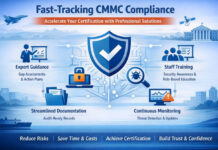Embarking on the journey of entrepreneurship demands more than just a robust business idea—it requires a wealth of resources, tools, and knowledge to navigate the complexities of starting and running a successful business. From government aid to educational programs, and from community networks to essential software, a plethora of support mechanisms are available to those ready to take on the entrepreneurial challenge. Keep reading to discover vital resources that can pave the way for a flourishing business venture.
Essential Online Resources for Aspiring Entrepreneurs
Starting a business has never been easier with the plethora of online resources available. The U.S. Small Business Administration offers detailed guides on every aspect of business development, from planning and launching to managing and scaling. Entrepreneurial forums and communities provide valuable advice and networking opportunities. Tools like LivePlan and Statista support efficient business planning and market research, essential for making informed decisions.
Building a strong online presence is crucial in today’s digital age. WordPress and Shopify enable entrepreneurs to create professional websites effortlessly, while online marketing tools and social media platforms help drive growth and engage audiences. Understanding and securing the right business insurance through online resources can protect against potential risks and liabilities.
Government Resources to Help Launch Your Business
Government resources are crucial for entrepreneurs, offering programs like the U.S. Small Business Administration (SBA) and the Internal Revenue Service (IRS). The SBA provides funding, counseling, and training, while the IRS provides information on permits, licenses, and regulations specific to the region. The IRS website provides detailed guidance on tax obligations, tax credits, and deductions for businesses.
The U.S. Commercial Service assists businesses in exporting products and services, navigating international markets, and establishing connections with potential partners. Grant programs from the government can help finance specific aspects of a business, such as research and development or exporting. Regularly checking grant databases and applying for relevant opportunities can provide significant financial boosts without the need to repay funds.
Networking and Community Support for Startups
Local networking groups, events, and co-working spaces provide opportunities for entrepreneurs to connect with industry experts and share ideas. Co-working spaces offer affordable office options and a supportive community, hosting events, skill-sharing sessions, and pitches. Online communities like LinkedIn, Meetup.com, and industry forums facilitate virtual networking, offering mentors, partners, and early customers.
These communities also provide insights into industry trends and consumer demands. Organizations supporting specific groups of entrepreneurs, such as women, veterans, or minorities, offer tailored support and resources, such as free mentoring from experienced professionals like SCORE. These resources can be particularly beneficial for those new to the business world.
Educational Platforms Offering Business Courses
To master business ownership, a solid educational foundation is crucial. Platforms like Coursera and Udemy provide courses on business management, finance, and marketing, often led by top professors and industry experts. For practical skills, an Associate of Applied Business in Business Applications Technology offers hands-on training for managing modern business technologies and can be pursued online for flexibility.
Personalized learning options include one-on-one coaching, small group workshops, and industry-specific conferences. Many institutions also offer free online resources, webinars, and libraries, making quality business education accessible even for those with tight budgets.
Free Tools and Software for Small Business Management
Small businesses can benefit from the use of free tools like Trello and Asana for project management, financial management, customer relationship management (CRM), and digital marketing. These tools help organize tasks, manage finances, track customer interactions, and improve customer service. Wave Accounting offers free invoicing and accounting services, while GnuCash provides budgeting and forecasting insights.
CRM systems like HubSpot offer free tiers for efficient customer interaction tracking and lead management. Google Analytics and MailChimp offer valuable insights into website traffic, engagement, and email campaign effectiveness, enhancing online marketing strategies and customer reach. These tools are essential for small businesses to streamline their operations and improve their overall success.
Overall, starting a business is made considerably easier with the wealth of resources available today. Entrepreneurs can leverage online tools, government support, community networks, educational platforms, and free management software to build strong foundations for their businesses. Success in the entrepreneurial realm is never guaranteed, but by taking advantage of these resources, the odds can certainly be tilted in favor of the savvy startup owner.











